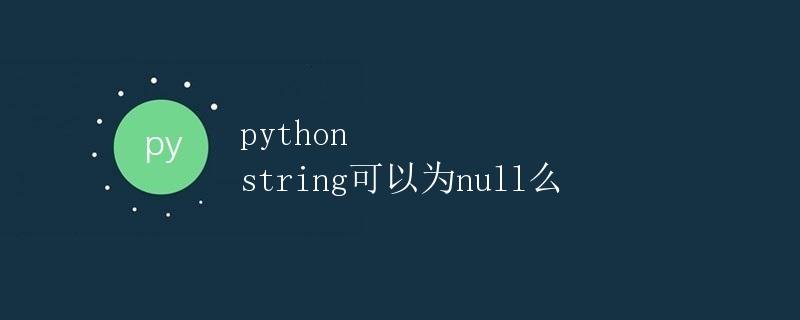Can Python string be null?
Can Python strings be null?

In Python, a string (str) is an immutable data type used to represent textual data. In Python, a string can be an empty string (“”), but there is no concept of an empty string.
An empty string is a string of length 0, meaning it contains no characters. In Python, an empty string is legal because it represents a valid string object.
However, there is no empty string object in Python because strings in Python are immutable. That is, once a string object is created, its value cannot be changed.
Next, let’s analyze whether a string can be Null in Python:
Strings are immutable objects
In Python, strings are immutable objects, meaning that once a string object is created, its value cannot be modified. Therefore, there are no Null strings in Python.
# Strings are immutable objects
s = "hello"
s[0] = "H" # Will report an error, the string cannot be modified
None represents a null value
In Python, None represents a null value, similar to Null or nil in other programming languages. None is a special constant used to represent a null value or placeholder.
In Python, None can be used to indicate that a variable has no value or a function has no return value.
# Use None to represent null values
x = None
if x is None:
print("x is None")
Strings cannot be None
Because strings are immutable objects and string objects exist, strings cannot be None.
# Strings cannot be None
s = None # Will report an error. Strings cannot be None
Therefore, in Python, strings cannot be Null, but can be empty strings.
In summary, in Python, strings are immutable objects and cannot be None, but can be empty strings.